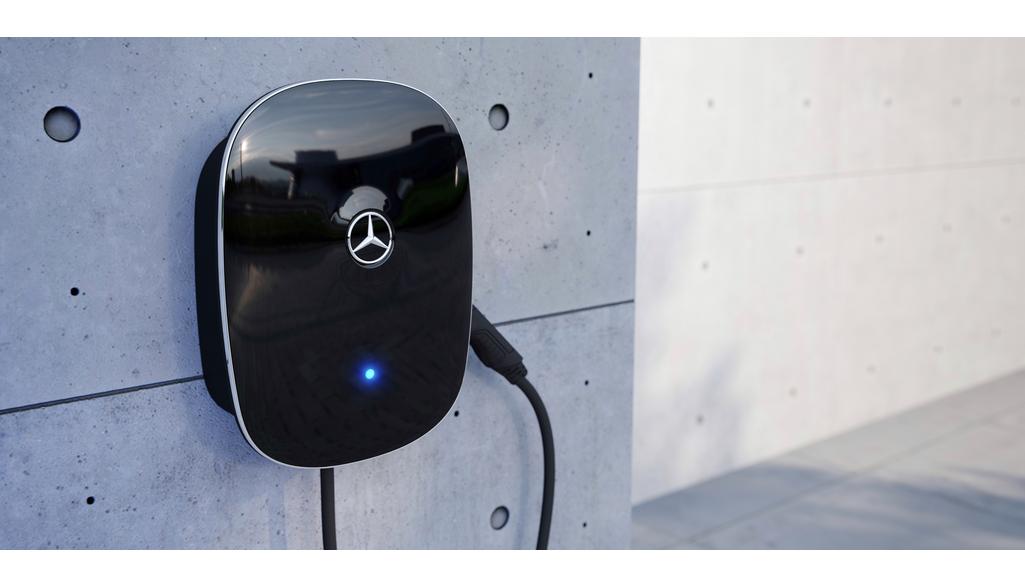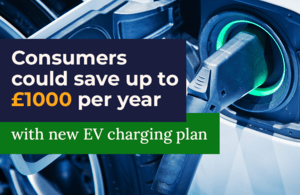New plan for smart electric vehicle (EV) charging could save consumers up to £1000 a year



The Electric Vehicle Smart Charging Action Plan, published by the government and Ofgem, sets out steps being taken to seize on the significant potential of smart charging and make it the preferred method of long duration charging by 2025.
Smart charging harnesses the potential of energy use data and the latest energy innovations to deliver significant benefits for consumers, including allowing motorists to charge electric vehicles when electricity is cheaper or cleaner, allowing consumers to power their home using electricity stored in their electric vehicle, or even sell it back to the grid for profit. It is expected high mileage motorists could save up to £1,000 a year through smarter charging.
And to back this up further, the government has today also announced £16 million funding from the Net Zero Innovation Portfolio (NZIP) for technologies that harness the potential of smart charging, including a smart street lamppost which will enable motorists to access smart charging on the move, and projects that will enable domestic appliances, from heat pumps to electric vehicle charge points and batteries, to integrate into a smarter energy system.
Energy and Climate Minister Graham Stuart said:
” We want to make smart charging an easier choice for drivers of electric vehicles, whether that is charging on the driveway, at the workplace, or parked on the street. To do that we need to build new network infrastructure at pace, using the latest available technologies. ”
” Today’s plan sets out how we will work with Ofgem and industry to kickstart the market for smart charging, which we are backing up with £16 million in innovation funding. This will let people take control of their energy usage, in the most convenient and low-cost way. “
Ofgem Director for Strategy and Decarbonisation Neil Kenward said:
” As energy regulator, we’re helping create the infrastructure to deliver Britain’s net zero future at the lowest cost to customers. This latest innovative plan will help to maximise the benefits of smart charging, offer vital savings to consumers and reduce the overall cost of energy by seizing the opportunities to use batteries to both power homes and fuel the wider grid. ”
Today’s announcements build on the major steps already taken by the government to enable smart and flexible electric vehicle charging. As of July 2022, all new charge points sold for private now must have smart functionality and the UK is consulting on a new policy and technical framework to unlock the benefits of domestic smart, flexible energy, and enhance its cybersecurity.
Through the plan, the government will improve publicly available information and evidence on smart charging, support the implementation of robust consumer service standards and ensure private charge points are secure and compatible with the latest energy innovations.
The roll out of intelligent and automated smart charging will deliver a win-win situation for all consumers. Reduced electricity system costs will lower prices for everyone, motorists will pay less for charging their electric vehicle, and the electricity powering electric vehicles will be cleaner and greener.
The government and Ofgem will seek to remove the barriers that currently prevent the full development of a diverse and competitive smart charging market, while making sure the energy system is ready to respond to the upturn in energy demand that electric vehicles will bring.
Among those receiving funding today through the V2X (Vehicle to Everything) Innovation Programme for prototype hardware, software and business models, are:
Among those receiving funding today through the Interoperable Demand-Side Response (IDSR) Programme, which supports technologies that allow consumers to remotely increase or decrease their energy use to take advantage of when energy is cheaper or more renewables are on the grid, are:
Depending on tariff, mileage, and charging patterns, smarter charging could save an average driver up to £200, and a high mileage driver up to £1000 a year by delaying the power demand from electric vehicles at peak periods, such as 4pm to 9pm on winter evenings. By helping to efficiently balance when energy is generated and used on the electricity grid, the technology could contribute to reducing electricity prices for consumers across the network.
Delivering the steps set out in the Action Plan will help make smart charging the norm at home and work by 2025. It is the ambition that in the late 2020s smart charging will also become more commonplace at long-duration public charging, such as on-street or at transport hubs.
The V2X Innovation Programme and IDSR Programme are part of the overarching Flexibility Innovation Programme, which seeks to enable large-scale electricity system flexibility through smart, flexible, secure, and accessible technologies and markets through funding of up to £65 million. The programme sits within the £1 billion Net Zero Innovation Portfolio (NZIP).
Over £3.2 million will be provided to projects through Phase 1 of the £12.6 million V2X Innovation Programme to develop prototype hardware, software and business models that harness smart charging technology.
Over £12.8 million will be provided to projects to develop and test smart energy solutions that can deliver demand side response (DSR) for consumers, decreasing or increasing energy consumption depending on price, availability or emissions. By giving consumers greater control over their energy use, projects funded through the Interoperable Demand-Side Response (IDSR) Programme will allow them to change their consumption patterns to match times of cheap and abundant low carbon electricity.
A market engagement event on the Phase 2 of the V2X Innovation Programme will be held at 2pm on 25 January. Find out more and register.
The IDSR programme consists of 3 streams of work, to support the innovation, design, and demonstration of interoperable demand side response (DSR) systems. Smart meters, technologies, tariffs and services will enable consumers to change their consumption patterns to match times of cheap and abundant low carbon electricity, give consumers greater control over their energy use and save money by helping to balance the energy system.
In 2018, the government established the Electric Vehicle Energy Taskforce to bring together policy makers, industry and academia to ensure that the energy system is ready for and able to exploit the mass take up of EVs.
Government has also announced it is looking at how to make data from all public charge points openly available so that consumers can easily find charge points suitable for their needs.
Today’s announcement builds on the steps the government has already taken to roll out smart charging, including:
Source: https://www.gov.uk/government/news/